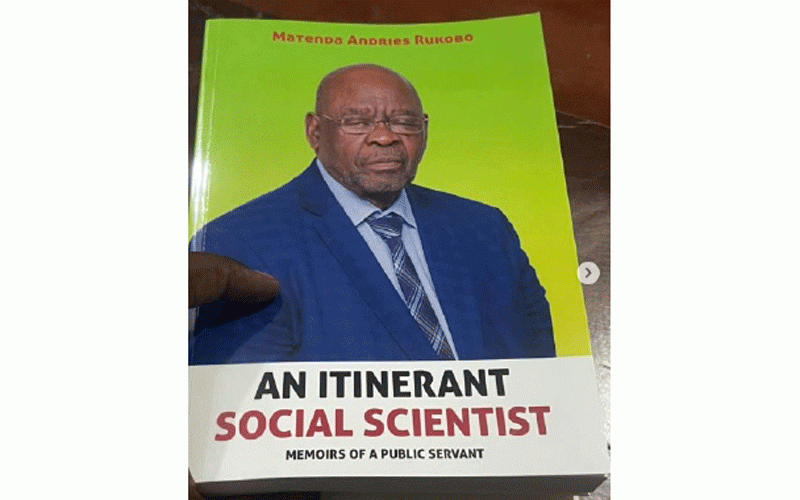
In a philosophically grounded autobiography titled, An Itinerant Social Scientist: Memoirs of a Public Servant, Andries Matenda Rukobo pens his career path dating back to pre-independence.
Given his distinct professional contribution to Zimbabwe’s development through his various senior stations of service to the government, Rukobo’s inspirational life of dedication to duty is a prism through which the public can appreciate the complex interplay between ideological construction and statecraft issues in post-independence Zimbabwe.
In walking back to history from Gurajena Village to the corridors of power in post-independent Zimbabwe, Rukobo’s journey encapsulates the successes and challenges of a post-colony re-asserting itself into the future.
This makes his book’s themes relevant to Zimbabwe and the entire Global South.
His well-written self-account retraces his evolution from a peasant’s child in Gurajena Village to a radical revolutionary organic scholar and a distinguished public servant who diligently served Zimbabwe from 1980 until his retirement in 2020.
The memoir explores the socialist and pan-Africanist trans-continental ideological influences on Zimbabwe’s decolonisation endeavours.
Subsequently, Zimbabwe’s contemporary political trajectory is beamed within the context of progressive anti-colonial thinking and a radical de-Westernisation approach.
This makes the book a refreshing handbook for deconstructing colonial remnants in Zimbabwe and the Global-South’s public administration sphere.
Rukobo invites a robust ideological reconstruction for Zimbabwe and Africa’s current political economy with a view to encouraging the dismantling of neo-colonialism in nations characterised as underdeveloped by the West.
As a result, this groundbreaking memoir is a welcome contribution to the body of knowledge for anti-imperialist scholars and public service professionals with an avid interest in appreciating Zimbabwe’s post-colonial power dynamics from the “pitfalls of national consciousness” of the 80s to the current development pathway of the Second Republic.
Therefore, Rukobo’s autobiography is a must-read for those keen on steering a pragmatic intellectual re-engineering of Zimbabwe’s development agenda in the context of a vicious asymmetrical world order.
Clearly, beyond self-reflection, Rukobo invites a critique of Zimbabwe’s current political economy with a view to advance the fall of imperialism and all its modern manifestations.
Rukobo is the founding dDirector of the Zimbabwe Institute for Development Studies, former director in the Information, Postal and Courier Services ministry, principal director Public Service Commission.
At his retirement from mainstream public service work, he was chief director at the Parliament of Zimbabwe.
He is a board member of the Infrastructure and Development Bank of Zimbabwe.
Rukobo has fairly acquitted himself in various other boards namely the National Parks and Wildlife Management (board vice-chair), Sovereign Wealth Fund of Zimbabwe (board chairman) and the Southern African Development Research Association (chairman).











